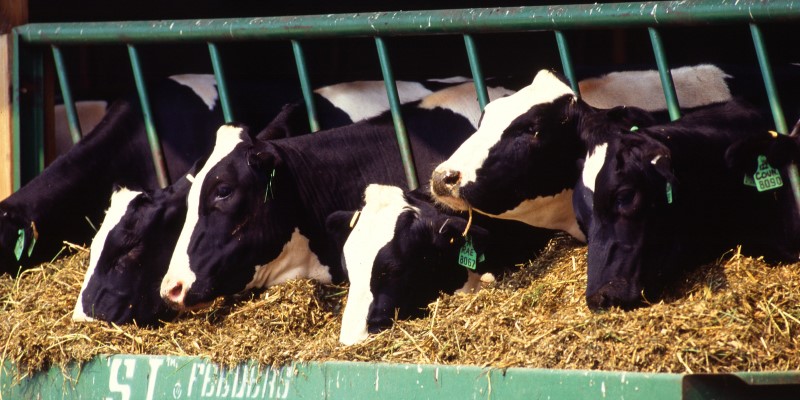Canada’s supply management system increases air pollution

In the last few years, a growing number of scholars and activists have tied our meat consumption with climate change. The reason is simple—animals emit large quantities of greenhouse gases as a result of enteric fermentation (i.e. flatulence, which releases methane).
In Canada, these gases account for a large share of the 10 per cent of total greenhouse gas emissions produced by the agricultural sector.
To respond to this, some have proposed a “meat tax.” While the idea’s been floating around for some time, it features prominently in recent news. However, there are good reasons to puzzle at this idea. Rather than impose a tax, it may be better to eliminate the subsidies and implicit state support granted to livestock producers, which encourage people to consume more animal products than they otherwise would.
The logic behind the proposal of a meat or animal products tax is that increasing prices will reduce consumption. As the consumption of animal products generates pollution in the form of the gases produced by livestock, the tax will also reduce production of greenhouse gases, which contribute to climate change. In economic terms, this means that livestock production generates “externalities” (i.e. a social cost), which are not embedded in the prices we pay for animal products. Because we do not pay the full price, we consume more. These externalities are as large as the difference between the “market price” (i.e. the price paid at the grocery) and the “social cost” (i.e. the true cost).
What matters here is the size of the gap between the market price and social cost.
Some research places the extent of this gap (for beef) at a maximum of nine per cent of the price per unit. A tax is meant to reduce this gap. Reversely, a subsidy widens that gap. Logically, eliminating a subsidy would reduce the gap. And we do offer a lot of incentives to produce more livestock!
In the United States, crops used to feed animals (corn, soy, etc.) receive the bulk of subsidies granted by the U.S. Department of Agriculture. Consequently, these aids prop up consumption in the U.S. To these, we must add direct subsidies granted to livestock producers. And there are other, more subtle ways, agricultural policy widens that gap.
For example, Canada’s system of supply management increases the price of poultry products. Now, while poultry meat does generate more greenhouse gases than grains and vegetables, it’s the meat that generates far fewer emissions than beef. However, because the system of supply management raises poultry prices, some Canadians substitute for more polluting beef. This is important because beef and dairy cattle constitute the lion’s share of emissions in Canada—specifically, 88 per cent of all agricultural methane emissions. Absent the system of supply management, Canadians would consume more chicken and less beef, and thus their consumption of meat would be less-polluting. These examples illustrate that eliminating numerous forms of government support would yield the same effects as a tax on meat.
Finally, these argument does not apply to meat only, but to all forms of agricultural policies. There are a great many forms of agricultural support measures that cause environmental harm by incentivizing too much production in many countries. Moreover, these policies generate indirect effects by preventing production from concentrating in the most productive areas of the planet so as to reduce land use (which would allow acres of land to return to a forest state that would sequestrate carbon emissions).
Thus, instead of proposing an additional layer of state intervention, the wisest course of action might be to follow policies in the logic of “first, do no harm.” As such, one would dismantle policies that encourage the overconsumption and production of meat rather than trust the pyromaniac (who set the blaze in the first place) to solve the issue.
Author:
Subscribe to the Fraser Institute
Get the latest news from the Fraser Institute on the latest research studies, news and events.

